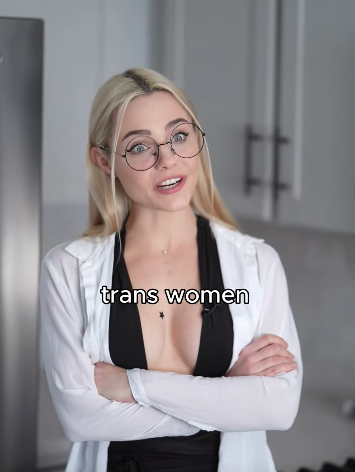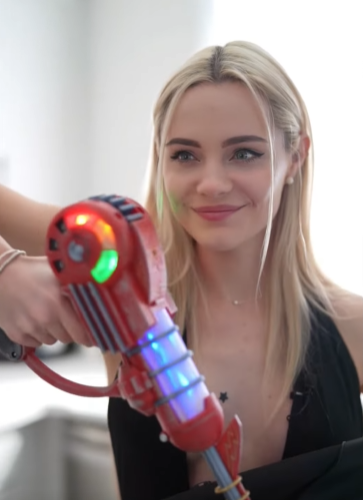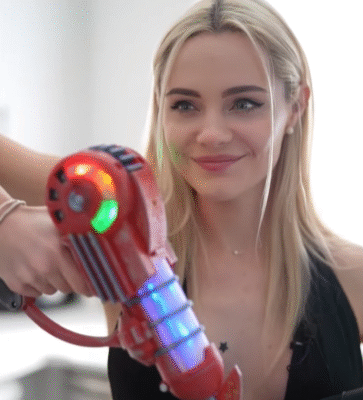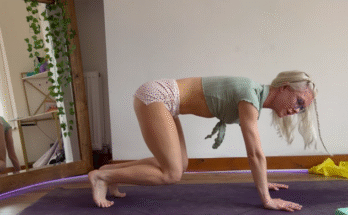
The question echoed through the cluttered garage, bouncing off rusted shelves and dusty boxes stacked higher than the eye could follow. “Oh my, can this be thrown away?” Grandma Mae muttered, holding up an old metal teapot, its handle barely hanging on. She squinted through her thick glasses at the rust spots creeping like mold across the once-polished surface.
Next to her, Ellie, her 14-year-old granddaughter, sighed and shook her head. “Grandma, I don’t think that thing has held tea since the 1970s. It looks haunted.”
Grandma chuckled. “That may be true, but it’s also the teapot your grandfather used to propose to me. He brewed chamomile tea and slipped the ring into my cup. I nearly choked on it, but oh, what a proposal!” She laughed at the memory, her eyes misty.
Ellie paused, her hands still buried in a box marked Old Stuff – Don’t Touch. Moments like these were why she loved helping Grandma with “The Great Decluttering Project,” as they’d started calling it. It had begun as a simple idea—clearing out the garage to make space for a home gym. But now, it felt more like an archaeological dig through generations of memories.
They found everything from a cracked badminton racket to a collection of cassette tapes labeled “Road Trip ‘91.” Ellie pulled out one of the tapes and waved it in the air. “What about this one? I don’t even think anyone owns a tape player anymore.”
Grandma Mae took it gently, brushing off the dust with her sleeve. “Oh, honey, that’s the mixtape your mom and I made when she graduated from high school. We blasted this music on the way to Yosemite. Played it so much the car battery died one morning.”
Ellie grinned. “Okay, so that’s a no?”
“That’s a definitely not,” Grandma said, placing it in the “Keep” box with a fond smile.
Over the next few hours, the pair continued their slow excavation of the past. Every object seemed to come with a question—and a story.

“Oh my, can this be thrown away?” Ellie asked, holding up a pair of worn-out gardening gloves that looked like they’d been through a war.
“No way,” Grandma said. “Those gloves planted every vegetable in that garden. They’ve seen better days, but maybe they’ll inspire someone else to get their hands dirty.”
“You mean me, don’t you?”
Grandma winked.
By noon, they had three piles: “Keep,” “Donate,” and the smallest—“Throw Away.” Ellie noted the trend. “You realize we’re not actually getting rid of anything, right?”
Grandma tilted her head. “It’s not just about throwing things away. It’s about remembering why we kept them in the first place. And maybe, just maybe, finding a way to pass on what matters.”
Ellie nodded. She got it now. This wasn’t a chore. It was a conversation—a passing down of wisdom and wonder. Still, she pointed to a wobbly wooden chair with one leg gnawed on by termites. “Okay, Grandma. No story for this one. Tell me this can be thrown away.”
Grandma squinted, then let out a deep sigh. “That… that was your uncle Jerry’s thinking chair. He’d sit in it to write poetry. Of course, the termites won in the end. Fine, yes. That one can go.”
Ellie whooped in victory and carried it triumphantly to the “Trash” pile.
Later that afternoon, a small cardboard box caught Ellie’s eye. Inside were bundles of letters, tied with a faded red ribbon. She lifted one out, careful not to rip the fragile paper.
Grandma saw and smiled softly. “Love letters. Your grandfather wrote one every week while he was away working on the railroad. No texts back then, just pen and heart.”
Ellie ran her finger over the faded ink. “They’re beautiful. Can I read them?”
“Of course,” Grandma said. “And when you’re done, maybe write some of your own. Words like these last longer than you think.”

They sat side by side, Ellie reading aloud and Grandma interjecting with laughter or tears at the right moments. The garage had turned into a theater of memory, and each item was a prop in the play of her family’s life.
Suddenly, Ellie held up a broken lava lamp, the goo inside having long congealed into an unidentifiable blob. “Okay, last one for now. Oh my, can this be thrown away?”
Grandma squinted. “Is that the one with glitter in it?”
“Yeah. The glitter is stuck. It’s officially dead.”
“Then yes,” Grandma nodded. “But only because I have a new one in the house. You know, some things are worth replacing.”
As the sun began to dip below the horizon, casting long golden rays across the concrete floor, Ellie surveyed their progress. Boxes had been sorted. Junk had been cleared. But more than that, connections had been deepened. What started as a mission to get rid of the old had turned into a celebration of what still lived in their hearts.
Before leaving, Ellie picked up the battered teapot one more time.
“Grandma?”

“Yes, dear?”
“I think I’ll keep this one. For my future kitchen. And maybe my own tea-proposal someday.”
Grandma’s eyes twinkled. “Just don’t choke on the ring.”
They laughed together, the kind of laughter that filled the cracks of a home with joy. And as Ellie tucked the teapot gently into her backpack, she thought again about the question that had guided their day: Oh my, can this be thrown away?
Sometimes the answer wasn’t simple. But sometimes, just asking the question was enough to remember what mattered—and what was better left behind.



